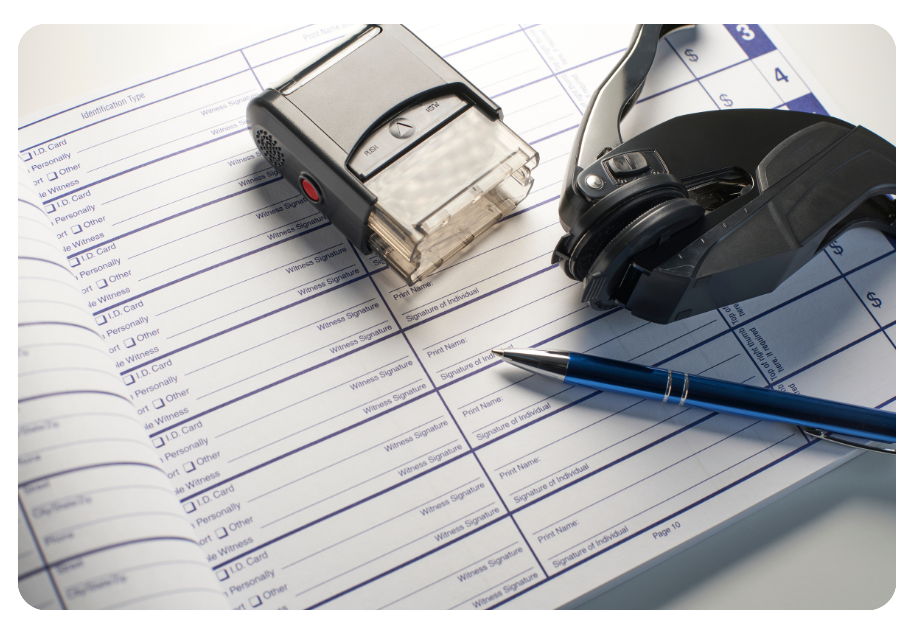| NOTARIZATION SERVICES FOR LAW FIRMS & LEGAL SERVICE
Legal Notarization Services
Ensuring the authenticity and compliance of critical documents is essential for legal services.
Our comprehensive remote online notary software and services offer law firms, attorneys, and legal clients secure, efficient solutions to notarize legal documents, powers of attorney, affidavits, and various contracts.
Integrating our Remote Online Notarization (RON) capabilities into your digital workflows can streamline operations, enhance client satisfaction, and simplify.
Legal Notarization Services Include:
Real Estate Transactions
Deeds
Mortgage Documents
Lease Agreements
Estate Planning
Wills
Trusts
Advance Directives
Powers of Attorney
General Power of Attorney
Durable Power of Attorney
Medical Power of Attorney
Affidavits and Sworn Statements
Affidavits
Declarations Under Penalty of Perjury
Business and Corporate Documents
Articles of Incorporation
Operating Agreements
Partnership Agreements
Legal Notices and Court Documents
Summons and Complaints
Subpoenas
Notices of Default
Miscellaneous Legal Documents
Settlement Agreements
Release of Claims
Waivers
Top Rated Notary Service
Our platform and notaries deliver exceptional service every day. Thousands of reviews and an average rating of 4.8/5 stars, demonstrates our commitment to satisfaction.
Transactions
Customer Satisfaction
U.S. States
Countries
| CASE STUDIES
Explore case studies that highlight efficiency, compliance, and convenience.

| ANSWERS TO YOUR QUESTIONS
What identification is required for notarization of a legal document?
When notarizing a legal document, you are typically required to present a valid, government-issued photo identification that verifies your identity. Commonly accepted forms of ID include:
State-issued driver’s licenses
State-issued identification cards
U.S. passports
U.S. military identification cards
Permanent resident cards (Green Cards)
These IDs are preferred because they contain essential elements such as a photograph, signature, physical description, and a unique identification number, which help notaries confirm your identity accurately.
It’s important to note that acceptable forms of identification can vary by state. And, before your notarization appointment, ensure that your identification is current (not expired) and matches the name on the document to be notarized.

Now Hiring Notaries!
| MORE FREQUENTLY ASKED QUESTIONS
The requirements for making a POA valid differ across states. In many places, you'll need to sign the document in front of a notary public to confirm its authenticity. Some states might also require witnesses during the signing. To ensure your POA meets your state's legal standards, it's a good idea to consult local laws or seek advice from a legal professional.
Not necessarily. While many remote online notary platforms are legally authorized to notarize documents, law firms often deal with sensitive, high-stakes legal documents—such as estate plans, real estate transfers, or powers of attorney—that may require additional safeguards.
To help ensure validity, compliance, and enforceability, it's recommended that law firms use a RON service that is:
Compliant with state laws: Not all RON platforms are approved in every state. Law firms must ensure the platform meets the legal standards of the jurisdiction where the notarization is taking place.
Equipped for legal documents: Legal documents often have specific requirements—such as witness coordination, secure storage, and identity verification—that some general-purpose platforms may not support.
Trusted by legal professionals: Specialized RON providers designed for legal use typically offer enhanced security, audit trails, and integration with law practice workflows, which can help mitigate risk and maintain client confidentiality.
Bottom line: Law firms can use remote online notaries, but for legal documents, it's best to choose a service tailored for legal professionals to ensure full compliance and protection.
NotaryCam can offer all these features and more. Learn more about our services for law firms.
Yes, a notary at your law firm can perform notarizations using a RON platform, provided that RON is permitted in your state and the notary complies with all state-specific requirements. As of 2024, the majority of U.S. states have enacted laws allowing some form of RON. However, the specific regulations and implementation can vary significantly between states.
It's essential to consult your state's notary governing body to understand the exact requirements.
Integrating RON into your law firm's operations can enhance efficiency and client satisfaction. Consider the following steps:
Assess state laws and regulations: Make sure that RON is permitted in your jurisdiction and for your particular documents; and understand the specific requirements.
Train your notaries: Provide necessary training to your notarial staff on RON procedures and technology.
Choose a compliant RON platform: Select a RON provider that meets state standards and integrates seamlessly with your firm's existing systems.
Update internal processes: Modify your firm's workflows to incorporate RON and make sure that all staff are aware of the new procedures.
Communicate with clients: Inform clients about the availability and benefits of RON, providing guidance on how they can utilize this service.
*This page is provided for informational purposes only, and does not constitute legal advice, nor is it a representation, warranty, or covenant of any kind made by NotaryCam to the reader.






 Your Privacy Choices
Your Privacy Choices


